It’s not an exaggeration to say that many of your favourite TV shows in recent years have probably been cast by Chase Paris, CSA. He is the co-founder of Feldstein | Paris Casting, alongside Tara Feldstein Bennett, CSA.
Together they have cast shows and films that include: ‘Stranger Things’, ‘Ozark’, ‘Atlanta’ and ‘The Mule.’
As well as talking about many of the incredible projects Chase has worked on, what I really wanted to do in this interview is focus on the nuts and bolts of casting – on how actors get seen. In this interview we cover showreels, self-tapes, and how actors gain their first screen roles, and how they can gradually work their way towards bigger opportunities.
Chase Paris is a great interviewee; passionate about his craft, with a love for actors. I hope you take a lot from this interview, it’s a treasure trove of insight into how casting works.
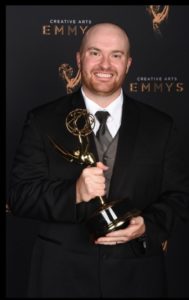
I really appreciated your feedback on the showreels article I posted – what role do reels play when you’re casting?
For me it can introduce me to an actor I’m not familiar with, or at the very least help ‘sell’ the actor to producers. I would assume a majority of actors live and die by the audition and aren’t able to rely on previous work (if any), which is a shame, especially given how active our regional actors have been the past decade. It helps separate the beginning actors from the seasoned ones – if a seasoned actor doesn’t have a reel there might be nothing to differentiate their audition from a beginning actor’s.
It also takes the pressure off the audition itself – I’ve hired several actors who maybe didn’t have the best audition, but when producers viewed their reel they go ‘ok, that audition may not have been perfect, but now I see what this person is truly capable of, let’s go with them.’
You should also try and make it entertaining, putting your strongest/most recognizable work up front. Remember that they may not watch the whole thing, so you need to get the best stuff up front, and if you can find a way to make it entertaining so we want to watch til the end then do that.
More than anything though, it should show you and what you’re capable of. If you have enough footage to be discerning make sure you’re showing us why we should cast you, and that’s usually by putting your best foot forward.
How did you get into casting initially?
I was an agent for several years as Atlanta started to prosper. Started the first year of our tax incentive, so my youth and inexperience matched a lot of the market, so I was able to grow into it a bit. My now partner Tara was an associate at an office in North Carolina and we got really close professionally. We were both looking to make a change around the same time and a series of networking connections led us to a network TV series looking to change casting directors, so we jumped right in.
I had zero proper casting experience, but my knowledge of the agent side combined with the proliferation of self tapes that had started to take off was very helpful. Back then agents would tape their own talent and send to casting, so I’d spend 5-8 hrs a day sometimes taping actors. I didn’t realize at the time but I was getting valuable reps auditioning talent, reviewing tapes, etc. thanks to the self tape boom that was in its infancy.
A lot of actors do short films, build showreel material – but then struggle to make that leap onto TV. Do you get the opportunity often to give actors those first screen credits?
That’s a big part of our job as local/regional casting. We have a large crop of experienced talent in this market, but we’re also tasked with hiring the 1-5 lines roles, which are best given to actors still building a resume – and yes that includes talent with no credits. It’s always a thrill to give that first credit for sure.
How do you know when an actor is ready to take that leap? I guess it’s different every time but I like to think of acting as a craft that actors get better and better at. And I’m wondering how you can tell when they’re ready to handle a big production.
If we’ve seen that actor a lot and just haven’t hired them then we’re building a rapport – even if it’s just virtually through a self tape. If they give a good audition then we’re inclined to back them. We also rely heavily on their talent reps, who we trust to only show us qualified actors, even if they don’t have credits. The fact that they’ve vetted them means a lot, and we trust the agents we work with implicitly. It would be a lot dicier if we didn’t have these relationships, more stress putting talent on set for the first time for sure.
When you’re working with someone with a very idiosyncratic style, like Jason Bateman, how do you find actors who can match him on screen? That can’t be easy.
Luckily for us Jason has been a producer/director on most of the projects we’ve worked with him on, and he loves and understands actors having been one all his life, so he’s able to work with just about anyone given how open and involved he is. I think I can confidently say that about most people we’ve worked with, actually.
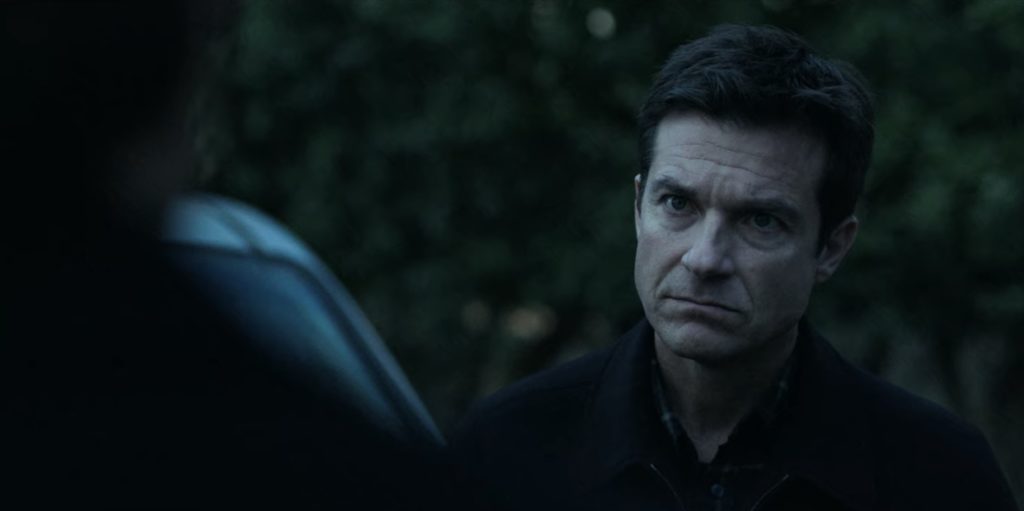
The key is to find good actors who are right for the part. The less ‘acting’ they have to do the better. A good example is ‘Atlanta’. Donald Glover and his team write these amazing scripts that feel like every single role is so well thought out. We’ve hired relatively inexperienced actors for bigger roles that were just so authentically Atlantan that I don’t know how much acting they were doing. They just had to show up and be themselves (though likely a slightly heightened version of themselves, I’m sure). That’s what we like to cast most – real people, real/interesting faces, not plastic Hollywood types. I feel like most projects are doing that nowadays, or maybe it feels that way because they seek us for that feel, but regardless we try and find the actor that pairs well with the overall feeling of the project and go from there.
Can you give me an insight into how you collaborate with directors. I guess it’s different every time – but I’m intrigued by what it is actually like – how final decisions get made.
It’s different every single time. Some are very hands-on – wanting casting concept calls before we start, copious notes on breakdowns and sides, lots of direction before and during auditions, perseverating over who to choose, etc. Others are entirely hands off – they give their blessing on breakdown descriptions, we gather auditions, and they pick the best of the bunch or even defer to us at times on who to cast. If we’ve worked with someone before it’s easy to jump back into a rhythm, but most times it’s about feeling things out until you get there, which can be fun and frustrating at times.
Producers are the same way, and in some cases will be more invested in casting than the Director. On most projects there are a lot of ‘cooks in the kitchen’ as we say, and decisions usually come from some sort of consensus. Often times then we have to get those approved by studio and network, if any, so it’s a whole process. It’s rare there’s any kickback higher up – but it happens.
‘The Mule’ – is casting a Clint Eastwood movie different to casting any other movie? I guess I’m just hoping for a cool Clint story… I’d love to know what it’s like to work with one of the true legends of cinema.
Well – I hope this isn’t too disappointing, but our process with Clint Eastwood on ‘The Mule’ and ‘Richard Jewell’ didn’t include any direct contact with him at all. We read people over several weeks for all roles and he does the casting from LA. It is a unique process though – we don’t send anything over the internet. Everything is taped, sent via SD card, then edited together at his studio for him to view in batches. There are very very few self tapes since we’d have to accept those digitally, so it’s a lot of facetime with actors that would normally self tape, which is always fun!
A lot of actors complain about being typecast. For example, always playing a cop. When you’re casting for a cop – are you looking for a guy who looks and acts like a cop, or is it a bit more nuanced that that?
First of all, actors should WANT to be type cast, especially starting out. That means you are being CAST. For me you should find those few roles you are perfect for, the ‘type cast’ roles, excel at those, and THEN use them as launching pads for other/bigger roles. This isn’t the stage – most actors are not swiss army knives able to do anything. On camera you’re pretty specifically a type – so lean in to that, use it to your advantage, and just work as much as you can. It will lead to bigger things.
For example – there’s a woman we rely on a ton for cop/detective roles. It’s hard to find a woman with that specific type of authority, especially when we don’t have pages of dialogue to establish that. It’s usually 1-5 lines, so you have to walk on camera with everyone believing you’re a cop. I KNOW she wants to do other things, and we were recently able to hire her for a badass season recurring role on a high profile series that was NOT a cop/detective – but right before that she was booked to recur as a cop/detective on a different series and that’s based in large part on her resume of those credits. If she had insisted on NOT being type cast earlier maybe she doesn’t book that, and maybe she doesn’t work with us enough previously to be put up for the badass NOT cop/detective role. What I’m saying is – find what you’re good at, lean in to it, take every role you can, and let things play out as they will. DO NOT limit yourself!
On the nuanced part – it all depends on size of the role. As I said, if we have pages and pages of dialogue to establish you as something it’s less important for you to inherently BE that role – though you almost certainly need to already be it in some way. For smaller roles you basically need to walk on camera believable as that role. Someone once told me that if they’re shooting a 30 sec commercial that features a firefighter the actor playing it needs to be a firefighter from the moment we see them, because we only have 30 seconds to get that across. Make sense?
If you are requested for a role that doesn’t feel like you as yourself if you have enough time to establish yourself as that role or not. If you do, great. If you don’t then just do your best version of it. DO NOT try and force it, that looks like bad acting. If you just do your best version of it, despite being wrong for it, you may not get the role, but we’ll see you, which is the best take away in that situation. Plus – we may have requested you specifically for your take on it, so go with it!
I have friends who are in that stage where they’re repeatedly getting cast in small roles in big productions. Which is great, they’re getting credits on shows many would kill for – but they keep getting, let’s say, two lines as a doctor, two lines as a therapist, three lines as an office worker. How do these guys build from that? It would be great if you have an example of someone you cast many years ago in a small role who you brought back again for different purposes – if you do have one.
I may have touched on this a little bit, but my best advice is to just keep taking the work. If you’re being called in that’s a win, and building that resume is key. If you want to be seen for larger things sit down with your rep and talk about how best to strategize that – but my advice would be for them to push you for larger roles when you’re right, but still audition for the other roles you’ve been booking. I’m not a fan of ‘holding out’ for bigger roles as that just takes away opportunities and I don’t think forcing the issue helps, and it can hurt if not done tactfully, to be honest.
Here’s an example: Atkins Estimond. Great guy, talented actor, tons of personality, magnetic. We worked with him on roles of all sizes, but the past few years he was booking larger roles, recurring, etc. He was recurring on a project for us that came back for a new season, but between seasons he booked a series regular role, which was awesome. To some it may seem he just arrived, but that took him at least 7 years of slowly building momentum, notoriety, etc. It took saying ‘yes’ more than saying ‘no’. Just a year or so before this series regular role he was recurring at scale on an ensemble show we were working on. Our budget and cast size wouldn’t allow us to improve the role, but he took it anyways, which was smart because it adds more weight to his resume and built his professional network, which I’m sure came up at some point before someone offered him a contract.
As I’m saying this more and more actors are coming to mind, much more than those who decided to force the issue by waiting for larger roles or finding other ways around the system.
Be patient, be prepared, and be opportunistic – good things will happen.
When you and Tara are casting a show – how does the process work? What do you do together and what do you do apart?
One of us takes the ‘lead’ on a project, which just means we’re the point of contact for productions and talent reps and handles most of the paperwork. Everything else is split fairly 50/50. I assist her and she assists me – it’s just the two of us after all. That boggles some people’s minds but honestly I don’t know how we’d fit someone else in to the workflow without a total reinvention of our process – which has worked well so far!
The thing we will always do together is split audition viewing. Neither of us wants to leave the other one hanging with all the work, and neither wants to be left out of the project either, so that’s a pretty sacred thing for us.
We have to talk about the Emmy. First, congratulations. How did it feel when you won?
Thanks! It was pretty surreal. I didn’t think we had a chance to win to be honest, though I was convinced Atlanta would. Comedy Casting was the first Emmy announced of the night and when we didn’t win that I sort of thought our night was over. 1.5 hrs later Drama Casting came up and when they called our name I nearly forgot to kiss my wife before walking up. In my head it’s one of those moments where the sound drops out and you just sort of float from moment to moment. Luckily it’s not a blur, it was a great night!
The cast of ‘Stranger Things’ quickly became iconic. How did you find those kids?
By the time we started the kids were already in place – there was a nationwide search done before the location had even been locked. I think initially they were looking at the north east to shoot, but luckily it came to us. Our claim to fame in season one is Shannon Purser for ‘Barb’ – she was a senior in high school when we cast her, and talk about making an impression. I can’t think of another person we’ve cast that took off so quickly.
I will say that Carmen Cuba’s process, combined with the Duffer Brothers, is very extensive and exhaustive. Those kids, and every cast member really, is the result of hundreds if not thousands of auditions being held all across the globe at times. It’s not a surprise that they’ve worked so well – they’re the result of combing through the best of the best.
How big a role are self tapes in your process?
HUGE. They’re the majority of what we do. A lot of that has to do with geography and the fact that the southeast works as a region much like LA or NYC work. When self tapes started most of the work was in North Carolina, which didn’t have the local talent base to hire ALL of the roles, so the net had to be cast wider. Back in the day talent would drive 7hrs to Wilmington, NC to read for 5 minutes then drive back! That’s where self tapes started to come along.
Nowadays Atlanta has a strong enough talent pool that we don’t need to look regionally for most roles, but the self tape system had already taken over so it’s the new norm. That, and we have so many productions shooting at one time and on such short prep timelines that if we didn’t have self tapes it’d be difficult to near impossible to cast everything in person.
That being said – we love actors and cherish the room, so when time/work/life permits we do get in there… though in a post Covid-19 world I think we’ll be discouraged or even barred from doing that for a while.
When an actor auditions in the room- what are you looking for? What gets your attention?
BE YOURSELF. Be calm, confident, prepared. I know everyone says it but everyone there wants you to do well. Actors need to understand that there are literally hundreds of other things that need to be done on a film instead of being live in the room – so if a director or producer is taking the time to see you in person it’s because they think you’re worth it. Go in with that sort of power. So many actors bomb because of nerves – find a way to get over that.
Generally if you’re coming to a live session we’ve already pre-read you at some point. Performance-wise you should come in and do that performance again. If we’ve given you a note make that adjustment, but otherwise come in exactly the same.
Do you enjoy your work? What do you want to be working on ten years from now?
Immensely, and I miss it (this interview was conducted during the Covid 19 pandemic). My only struggle is going to be how much time I’ve given up with my kids to go back to a regular work schedule! I’m fortunate enough to do a job I love that I feel compliments my work ethic and sensibilities in this industry. Even at my busiest I realize how lucky I am that I took advantage of certain opportunities when they arose. I would not trade this for the world.
As for 10 years from now – who knows. I definitely didn’t see myself here 10 years ago, so I guess I’m open to wherever life takes me. If I’m lucky enough to still be doing this at the level I am now I’ll be completely satisfied. It’s a job I could do until the end of time. A lot will depend on how Atlanta and southeast in general continues to develop and what that means for how we need to evolve in casting. The fun thing is you never know where this industry can take you if you’re willing to ride the wave, so I’m hoping I can look back on this interview in 10 years and say I rode it well!

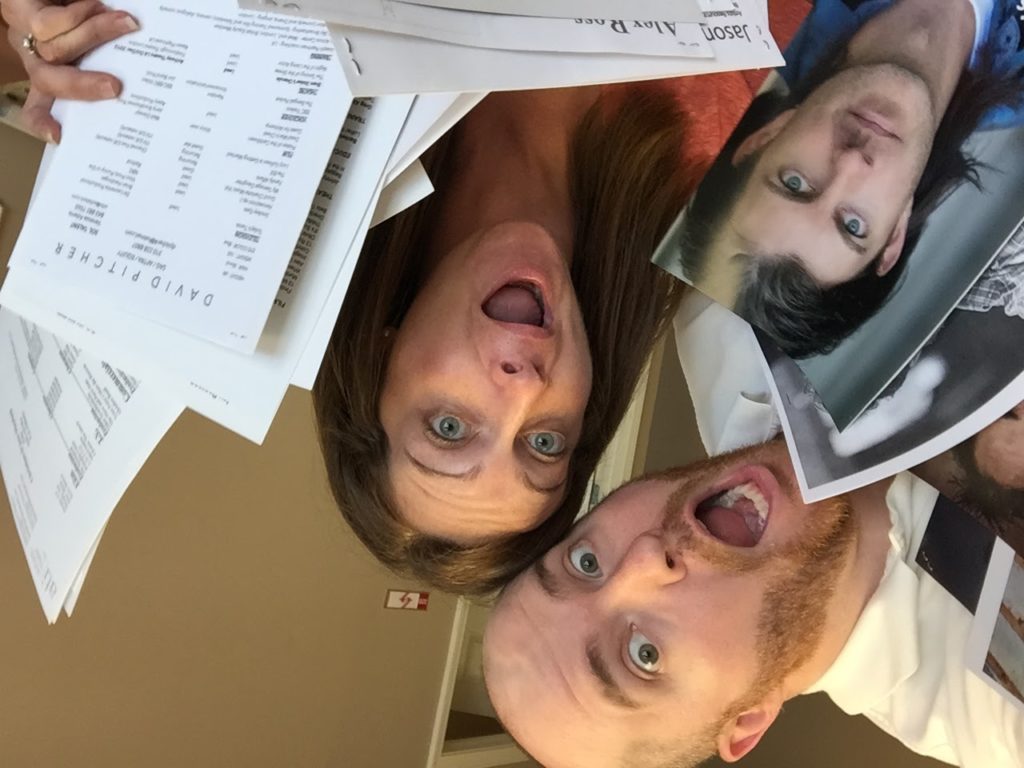
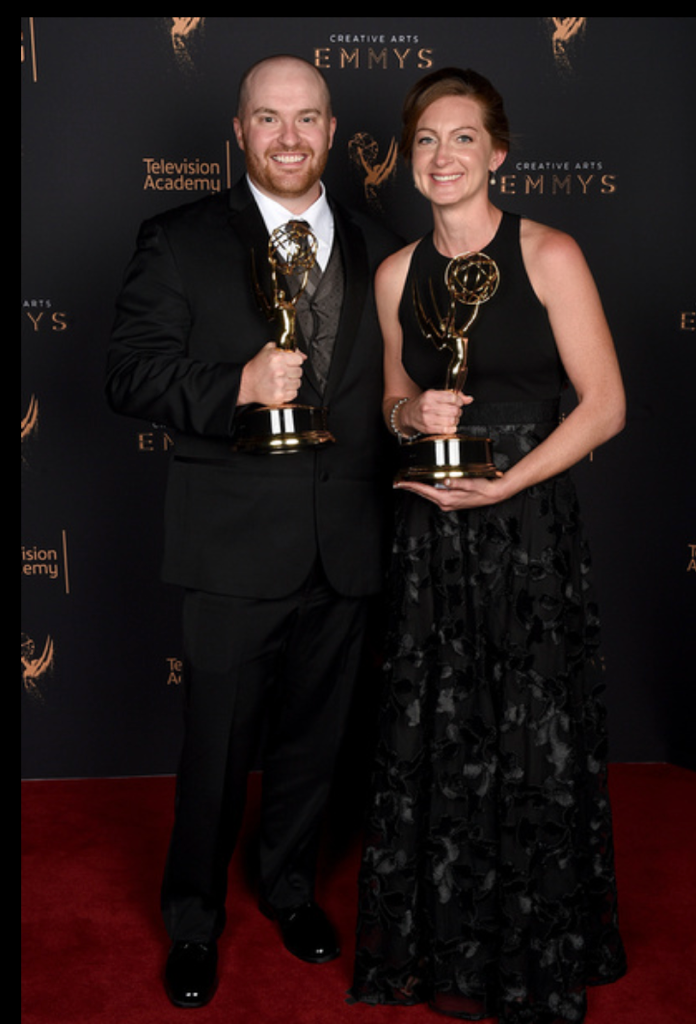
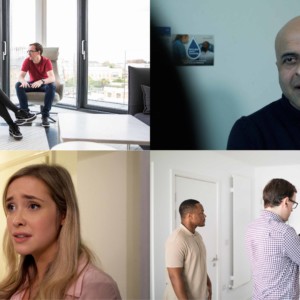
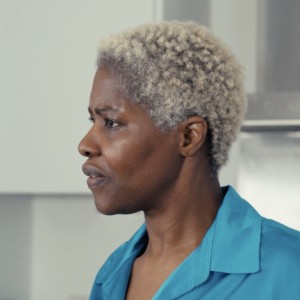
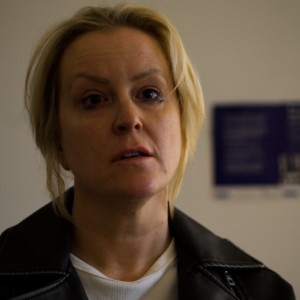
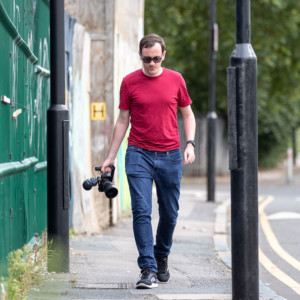

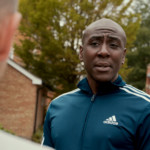
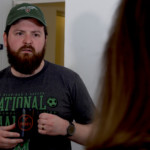
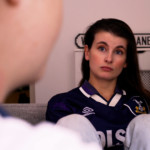

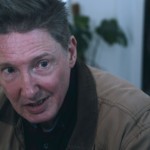

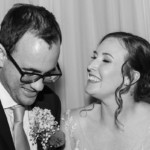
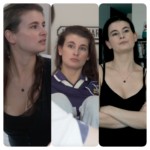
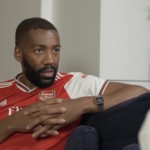
One Response
Excellent article/ interview, I’m sending it to my son who happens to be a young actor, he’s on LinkedIn and in Spotlight, Rupert Sadler, I’m wondering if he might send you his showreel ? He did have plans to be in LA this summer but the virus hit us all ! But happy to audition in London.
He has been studying acting since he was 7 , he’s now 24 with an MA with distinction from The Drama Center, London and has studied inRussia and he’s gorgeous !
Keep safe
Kindest Regards, all the way from Blighty